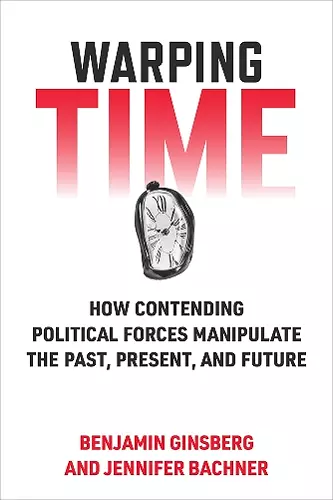Warping Time
How Contending Political Forces Manipulate the Past, Present, and Future
Benjamin Ginsberg author Jennifer Bachner author
Format:Hardback
Publisher:The University of Michigan Press
Published:11th Apr '23
Currently unavailable, and unfortunately no date known when it will be back

Warping Time shows how narratives of the past influence what people believe about the present and future state of the world. In Benjamin Ginsberg and Jennifer Bachner’s simple experiments, in which the authors measured the impact of different stories their subjects heard about the past, these “history lessons” moved contemporary policy preferences by an average of 16 percentage points; forecasts of the future moved contemporary policy preferences by an average of 12 percentage points; the two together moved preferences an average of 21 percentage points. And, in an Orwellian twist, the authors estimate that the “history lessons” had an average “erasure effect” of 8.5 percentage points—the difference between those with long-held preferences and those who did not recall that they previously held other opinions before participating in the experiment. The fact that the past, present, and future are subject to human manipulation suggests that history is not simply the product of impersonal forces, material conditions, or past choices. Humans are the architects of history, not its captives. Political reality is tenuous. Changes in our understanding of the past or future can substantially alter perceptions of and action in the present. Finally, the manipulation of time, especially the relationship between past and future, is a powerful political tool.
“Ginsberg and Bachner’s considerations of the political importance of time—weaved with astute observations from domestic and international politics, religion, and film history—is nothing short of brilliant. I cannot remember being this excited about a book.”
—Douglas B. Harris, Loyola University Maryland
Ginsberg and Bachner comprehensively show through extensive empirical data that people's beliefs about the past influence their political and policy preferences in the present and shape their expectations of the future. Further, they show that these changes in historical viewpoint can be so pronounced that respondents forget their preexisting beliefs and preferences.
-T. Wheatland, Assumption University
ISBN: 9780472076000
Dimensions: unknown
Weight: unknown
158 pages